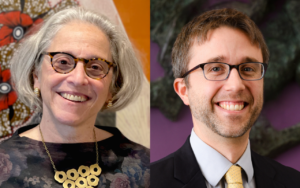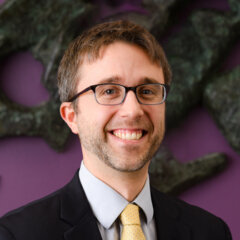 By Sharon Krevor-Weisbaum & Jamie Strawbridge
By Sharon Krevor-Weisbaum & Jamie Strawbridge
In a landmark decision, the Appellate Court of Maryland has rejected the Maryland Department of Health’s longstanding position that adult Medicaid participants who have rare medical conditions and require private duty nursing (“PDN”) services in their home can never receive such services 24 hours per day, seven days per week. The decision, issued on March 1, 2023, should help ensure that participants in Maryland Medicaid’s Rare and Expensive Case Management (“REM”) program receive the level of nursing services that they require, without artificial hourly restrictions.
The decision, In the Matter of Abigail Sulerzyski, concerned the REM program, through which the State provides community-based nursing services to Medicaid participants with rare, expensive-to-treat conditions. Ms. Sulerzyski qualified for the REM program because she has medical conditions including Cerebral Palsy and severe gastrointestinal deficiencies that require constant nursing attention and care. Prior to the lawsuit, Ms. Sulerzyski received 137 hours of PDN services per week. But the Department of Health refused to provide 24/7 PDN services—despite Ms. Sulerzyski’s undisputed need for it—which complicated Ms. Sulerzyski’s plan to live in her own home. The Department argued that Maryland regulations require voluntary caregivers (e.g., a parent or spouse) to care for REM program participants when they are able to do so, meaning when they are not working, sleeping, or in school. In its view, state-provided PDN services are a mere “adjunct” to care provided by such a voluntary caregiver. Because parents or spouses must help provide care as a matter of law, the Department argued, 24/7 care through the REM program is not a covered Medicaid service (except in case of emergencies, something that was not at issue in this lawsuit).
The Appellate Court rejected the Department’s arguments and clarified that REM program participants may receive community-based, 24/7 private duty nursing services so long as that level of care is medically necessary. The Appellate Court held that coverage of PDN services is not limited to those times when a voluntary caregiver is unavailable. The Department’s contrary view not only misinterprets Maryland regulations but also would conflict with federal law mandating the provision of Medicaid services based on medical necessity (and not additional criteria, such as the hours during the day when a voluntary caregiver is available). Because Medicaid is a collaboration between the federal government and states, Maryland must comply with federal Medicaid statutes and regulations and cannot set a higher bar for eligibility than is prescribed by the federal government, the Appellate Court explained.
Before the decision this week, many REM program participants may have been denied the 24/7 PDN services they require due to the Department’s incorrect interpretation of the law. Such individuals should consider petitioning the Department to increase the number of hours per week that they receive PDN services. We commend our colleague, Mark Martin, Esq., for his excellent advocacy on behalf of his client and for this win before the Appellate Court.
The attorneys at Brown, Goldstein & Levy have experience representing individuals who have had medically-necessary care denied by the state. Our healthcare regulation and Medicaid practice is headed by Sharon Krevor-Weisbaum, a former Assistant Attorney General for the Department of Health and Mental Hygiene. Sharon has the knowledge, experience, and relationships with state officials that enable her to counsel and advocate on behalf of Medicaid participants who have been denied services. If you or a loved one are participating in the REM program, require 24/7 private nursing services, and have not received that level of care, consider contacting us today to discuss your situation.

